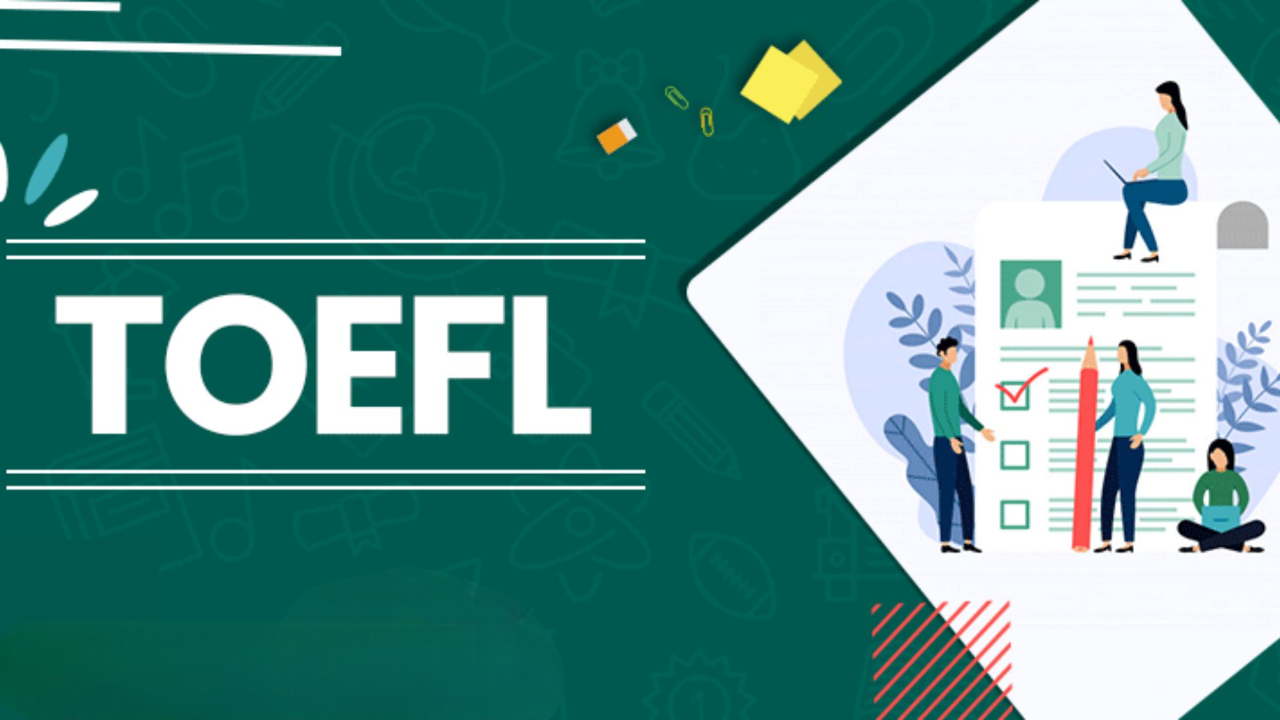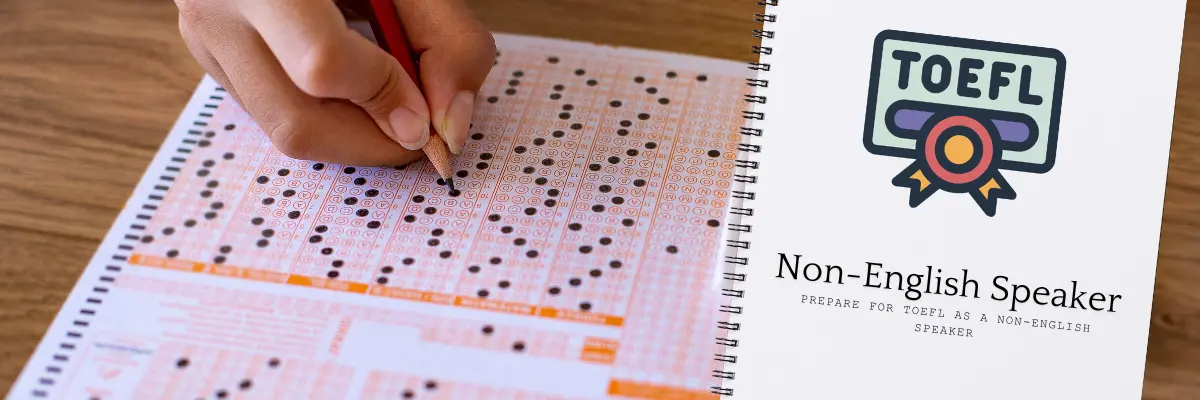22 Jun 2024 | How to Prepare for TOEFL as a Non-English Speaker
0
198
Introduction
Preparing for TOEFL as a non-English speaker can seem like a daunting task, but if you approach it the right way with the right tools and the right mindset, it can be a lot of fun. This TOEFL Preparation guide will help you dissect every section of the test and guide you accordingly on how you can improve your reading, writing, listening, and speaking skills. Whether you're prepping for TOEFL non-English speakers and looking to improve your current English proficiencies, being prepared and understanding what to expect only help you succeed. Indeed, as a non-native speaker, you will encounter different problems in this exam, but don't worry; this ultimate blog is here to guide you through each of the essential steps.
The "TOEFL" exam is an academic-based assessment which evaluates your competency in understanding and utilizing English. Universities, colleges and other institutions around the world widely recognize it. These essential TOEFL study tips passages will definitely help you in contributing to progress in all four sections of the project: Reading, Listening, Speaking, and Writing. It would help if you spent dedicated time learning in each area as needed and specifically structured your TOEFL preparation to your strengths and weaknesses to achieve this target score. So, let us get to the good part of the page, which is the best practices for preparing for TOEFL non-English speakers.
Why is the TOEFL Important?
Thus, the TOEFL exam is essential since it is an accepted proof of your level of communication skills in English. Universities in English-speaking countries such as the USA, Canada, and the UK use it to evaluate whether a non-native English student will be successful in an academic environment. Achieving a high score in TOEFL can get you admission to better universities, scholarships, enhanced career prospects, and more chances of visa application success. Getting to know everything about TOEFL means nothing but motivation to work hard for excellence.
Join our community for exclusive updates on study abroad.
Key Areas of the TOEFL Exam
The TOEFL exam consists of four sections: Reading, Listening, Speaking, and Writing. Here's a breakdown of each section, along with tips tailored explicitly for non-English TOEFL strategies.
-
Reading Section Tips
The Reading Section tests your ability to understand and analyze academic texts in English. To perform well in this section, preparing for TOEFL non-English speakers requires focusing on the following:
- Practice Skimming and Scanning: Speed is crucial. Practice quickly identifying the main idea and key details of reading passages.
- Expand Your Vocabulary: A broad vocabulary helps you understand complex texts. Make use of flashcards and apps to learn new words.
- Familiarize Yourself with Different Passages: TOEFL reading passages can vary in complexity. Practice with diverse materials to build your comprehension skills.
By regularly practising these methods, you'll gain the confidence you need to tackle the Reading Section effectively.
-
Listening Section Tips
The Listening Section requires you to comprehend spoken English in academic contexts. This part can be challenging for non-native speakers, but with the right strategies, you can succeed:
- Listen to English Daily: Immersing yourself in English through podcasts, news, or movies can improve your listening skills.
- Take Notes: While listening to audio passages, practice taking notes on key points. This will help you remember important details for answering questions.
- Use TOEFL Listening Practice: Practice with questions that simulate the actual test. The more you practice, the better your listening comprehension will become.
Try to make listening to English a regular habit, and you'll notice a significant improvement in your listening skills.
-
Speaking Section Tips
The Speaking Section assesses your ability to express your thoughts in English clearly and coherently. Here are some essential non-English TOEFL strategies to succeed in this section:
- Practice Speaking Regularly: Engage in daily conversations in English. Speaking with others will help you build fluency and confidence.
- Record Yourself: Recording your responses allows you to listen to yourself and identify areas for improvement.
- Use Speaking Prompts: Practice with TOEFL speaking prompts to familiarize yourself with the format and time constraints of the speaking section.
Practice is vital to feeling more comfortable speaking English under test conditions. Don't worry about making mistakes; the more you practice, the more natural your speaking will become.
-
Writing Section Tips
The Writing Section of TOEFL evaluates your ability to write clear, structured essays on given topics. Follow these tips for success:
- Practice Writing Essays: Regularly write essays on various topics. This will help you improve your writing speed and coherence.
- Get Feedback: Have a teacher or tutor review your essays. Constructive feedback will help you identify areas to improve.
- Use Templates: Learn and practice using essay templates that will help you structure your writing efficiently.
As with other sections, practice is essential for improving your writing skills. Focus on writing clear and concise essays with well-organized arguments.
Take your first step towards studying abroad today Apply Now
Additional TOEFL Tips for Non-Native Speakers
Stay Consistent and Patient
The road to success in TOEFL can be long, but persistence pays off. Regular practice is the foundation of improvement. Be patient with yourself, as language learning takes time.
- Consistency is Key: Set aside time each day to study and practice.
- Celebrate Small Wins: Every improvement, no matter how small, is a step forward. Celebrate your progress.
 Join Study Groups
Join Study Groups
Sometimes, studying with others can help you stay motivated and gain new insights. Consider joining study groups or online forums to exchange ideas, share resources, and motivate each other.
- Collaborate with Others: Find study partners or online communities to practice.
- Share Resources: Exchange study tips, practice materials, and advice.
Use Free Resources
There are plenty of free resources available online to help you prepare for TOEFL. Utilize libraries, websites, and online communities to gain access to free study materials.
- Library: Visit your local library for TOEFL prep books and practice tests.
- Online Forums: Participate in forums like Reddit or TOEFL prep groups where you can ask questions and get advice from other test-takers.
The Day Before the TOEFL Exam
- Rest and Relax: Ensure you get plenty of sleep the night before the exam. Being well-rested will help you stay focused during the test.
- Prepare Your Materials: Double-check that you have everything you need for the exam, including identification and any required documents.
- Plan Your Route: Know the location of your test centre and plan your route to avoid last-minute stress.
Conclusion
In summary, preparing for TOEFL non-English speakers requires a structured study plan, dedication, and the right resources. By focusing on each section of the exam and practising regularly, you will significantly improve your skills. Use a combination of official TOEFL resources, apps, and study strategies to master the exam. And remember, consistency is vital—don't rush, and take your time to refine your skills. The more effort you put into your preparation, the better your chances of success!
For more assistance, please visit our study abroad consultancy services and explore our wide range of offerings for students interested in studying in the USA, studying in the UK, studying in Canada, studying in Australia, studying in Ireland, and many other countries.
Frequently Asked Questions
Q1. What is the TOEFL exam, and who needs to take it?
Ans. The TOEFL (Test of English as a Foreign Language) is designed to measure the English language proficiency of non-native speakers. It's required by universities, colleges, and institutions in English-speaking countries for admission purposes.
Q2. How is the TOEFL exam scored, and what is considered a good score?
Ans. The TOEFL is scored on a scale of 0 to 120. Each section (Reading, Listening, Speaking, Writing) is worth up to 30 points. A score of 90 or above is generally considered good, though top universities may require higher scores.
Q3. How do I register for the TOEFL exam?
Ans. You can register for the TOEFL exam through the official ETS website. Choose a test date and location, create an account, and pay the registration fee to reserve your seat.
Q4. How can I improve my TOEFL scores in a short time?
Ans. To improve quickly, focus on your weak areas and practice regularly. Take full-length practice tests, work with a tutor, and use TOEFL prep apps to supplement your learning.


